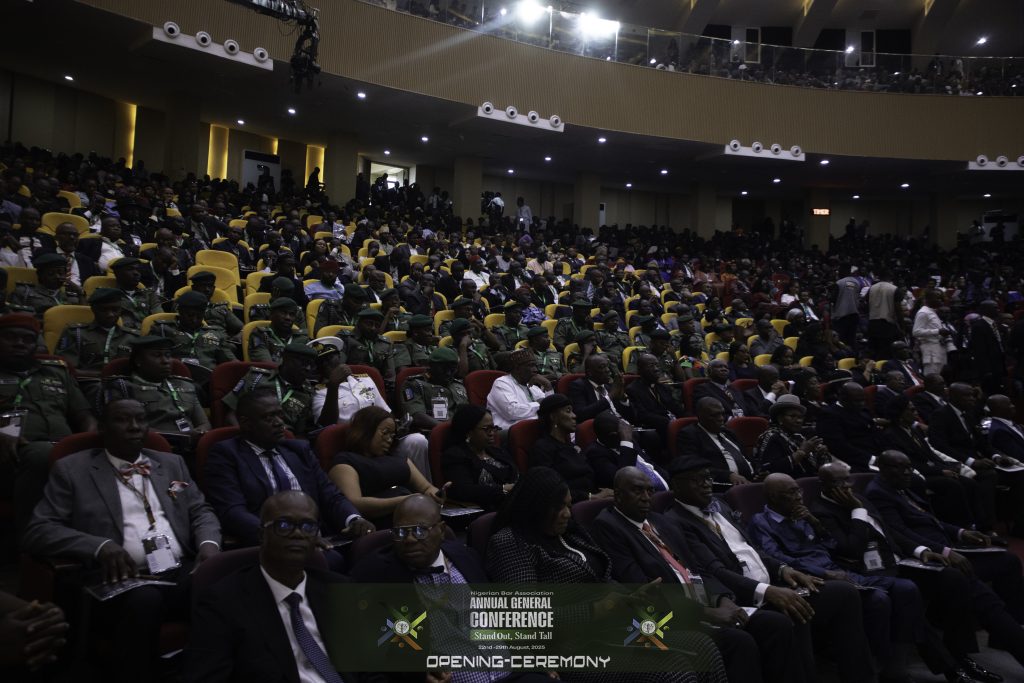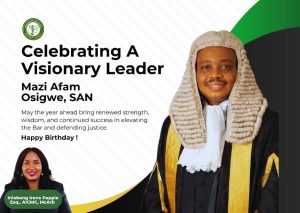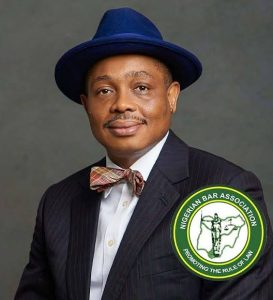The Chief Executive Officer of the Nigerian Financial Intelligence Unit (NFIU), Hafsat Abubakar Bakari, has urged members of the legal profession to rise above indifference and play a frontline role in tackling the menace of illicit financial flows, warning that “dirty money” is one of the gravest threats to Nigeria’s stability, economy, and democracy.
Delivering a thought-provoking presentation titled “Dirty Money: Confronting Financial Crime and Preserving the Integrity of the Legal and Financial System” at the Nigerian Bar Association (NBA) Annual General Conference (AGC) in Enugu, Bakari described dirty money as not just cash derived from crime but a corrosive force that erodes justice and undermines institutions.
Quoting Bess Myerson, she declared:
“The accomplice to the crime of corruption is frequently our own indifference.”
Dirty Money: A Global and National Threat
Bakari explained that dirty money encompasses proceeds from crimes such as corruption, fraud, terrorism financing, cybercrime, drug trafficking, and illegal oil bunkering, often disguised through complex laundering mechanisms.
She warned that Nigeria loses an estimated $18 billion annually to illicit financial flows, noting that lawyers and financial professionals often serve, knowingly or otherwise, as the “gatekeepers” who enable or prevent such funds from moving through the system.
“Dirty money is not just a national challenge; it is a global vulnerability,” she said. “It fuels terrorism, deepens poverty, destabilises economies, and corrodes democratic institutions. When lawyers abdicate their ethical duties, they risk becoming instruments of concealment rather than defenders of justice.”
The Role of Lawyers: Between Ethics and Enabling
The NFIU chief reminded lawyers of their dual position as protectors of justice and potential facilitators of financial crime. She cited several Nigerian court precedents—FRN v. Dariye, FRN v. Nwude, and NBA v. Kehinde, which reinforced the duty of lawyers not to conceal or enable proceeds of unlawful activity.
Referencing the 2023 Rules of Professional Conduct (RPC) and the NBA’s Anti-Money Laundering Committee (NBA-AMLC), Bakari stressed that the profession must enforce mandatory client due diligence, record keeping, and suspicious transaction reporting.
“Solicitor–client privilege cannot be a shield for laundering crime,” she warned, echoing global standards under the Financial Action Task Force (FATF) that impose obligations on lawyers as Designated Non-Financial Businesses and Professions (DNFBPs).
The Economic Cost of Inaction
Bakari highlighted the economic dangers of dirty money, from distorted property markets to reduced foreign investment and systemic instability. She recalled the Halliburton bribery scandal as a reminder of how illicit flows damage Nigeria’s reputation abroad.
“Dirty money creates a false sense of prosperity while choking innovation and honest investment,” she cautioned. “A rule-based system attracts capital; a compromised one repels it.”
A Call for Ethical Leadership
The NFIU CEO called on the NBA and the wider legal community to lead by example in combating financial crime. She urged lawyers to adopt a compliance culture that goes beyond minimal regulatory requirements to embody ethical leadership.
Quoting Napoleon Bonaparte, she said:
“The world suffers a lot, not because of the violence of bad people, but because of the silence of good people.”
She concluded powerfully:
“Dirty money is not an abstract policy concern, it is a living adversary to justice and development. As legal practitioners, our hands can either be instruments of integrity or tools of concealment. When the law sleeps, dirty money wakes to rule. Let us ensure that in our time, the law stays fully awake.”






